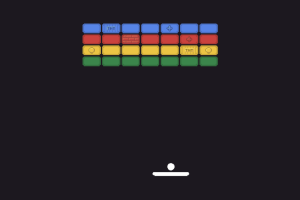Do you spend minutes or hours every day for checking social media platforms? If yes, you are not alone. Initially built to create connections between family members and friend’s social media platforms now serve as entertaining tools enjoyed by everyone across different ages. People keep using social media platforms frequently because they develop addiction.
While there’s nothing like a diagnosis for social media addiction, the overuse of these platforms is quite common today. The platform creates harmful consequences for our physical health and mental state. We will provide total information about social media addiction alongside effective methods to treat this problem. Let’s get started!
Defining Social Media Addiction
Users turn to social media platforms for communication while also viewing entertaining videos to spend their free time. Furthermore, social media platforms’ popularity becomes crucial within children and young adults’ demographics. What mechanisms turn a harmless hobby into pathological addictive behavior? Social media becomes harmful to your brain through misuse in the same manner that other addictive behaviors cause brain damage.
You reach the point where endless scrolling through content prevents you from maintaining focus on important life responsibilities. According to statistics gathered from research studies nearly ten percent of US citizens experience social media addiction.
Since most people make use of social media today this addiction has the potential to affect a larger population. Widespread technological advancement enables this type of activity to reach thousands of new users daily. And this poses a huge risk.
Why are Addicted to Social Media?
Scrolling posts, videos, and photos during your leisure time can seem like a harmless activity. However, it has a huge effect on your mind. Your brain releases dopamine – a pleasure-associated hormone when you access your preferred platform. Your brain interprets increased dopamine from social media use as an enjoyable activity to be pursued again and again.
You may start feeling great whenever you post something and read positive comments from your friends and followers. The positive experiences that you get from social media are temporary. As the effects of dopamine start wearing off, you’ll find yourself going back to social media to get more. If you are isolated due to the pandemic or work, you might feel encouraged to use social media to reduce loneliness which is not always the case.
Effects of Social Media Addiction
While engaging in social media every once in a while is not likely to affect you, overusing these platforms can lead to serious negative consequences on the body and mind. And they include:
- Low self-esteem is caused by an inaccurate perception that other people are living better lives than you.
- Increased loneliness and isolation.
- Lack of sleep, especially if you use social media platforms at night.
- Poor performance at school.
- Reduced ability to empathize and understand others.
- A decline in physical activity can affect your general health.
- Fear of missing out can lead to more usage of the platforms.
- Depression or anxiety.
Are You Addicted To Social Media?
Getting help from a mental health professional can help you find out whether you are suffering from social media addiction or simply using it a lot. There are a few differences between a habit that you enjoy and social media addiction. And they include:
- Negative effects at school or work are due to overuse of these platforms such as scrolling pictures and videos instead of working or studying.
- Increased use of social media when hanging out with family and friends or when eating.
- Relying on social media to cope with challenges that you are currently facing.
- Feeling angry or bored whenever the usage of social media is reduced.
- Irritability or restlessness whenever you are not scrolling pictures or videos on social media.
- Thinking about social media when it’s not time to use it. And open it first whenever you get an opportunity.
- Losing track of time whenever you log onto your social media account.
- Compulsive access which involves accessing social media after a couple of minutes to see if there are any new updates.
Best Strategies To Address Social Media Addiction
Here are some of the best ways that you can use to beat social media addiction:
Disable Notifications On Your Gadgets
Notifications on your phone, tablet, or computer are one of the biggest killers of productivity. Whenever you hear a notification sound or notice changes on the notification bar, you find yourself checking your gadget immediately unconsciously.
Notifications can disrupt you especially when you have important activities that need to be done. If you don’t turn off notifications, you’ll find yourself visiting social media platforms after every few minutes.
This can lead to wastage of time, procrastination, and poor performance at work or school. If you want to get the most out of your day and beat social media addiction, turn off your phone.
Finding A New Hobby
To beat social media addiction, you’ll need to set a time limit. After doing this, you’ll notice that you’ll have a lot of time for yourself. So, what are you going to do? Your free time provides many more opportunities for activities than you might realize.
When you stop checking social media posts and notifications excessively and compulsively, you’ll get enough time to try new recipes, draw a beautiful piece or read books. Revisiting your old hobby or trying a new hobby will transform your life. Once you start doing what you love, you are likely to see yourself doing other fun activities instead of checking social media platforms.
There Is A Real World
Most people are so immersed in their gadgets and technology that they forget to have fun with the family and friends close to them. If you don’t live with your family or are close to your friends, call them regularly.
This is one of the best ways to build your social life. As the popular saying goes, no man is an island. You need to cooperate with others to have a meaningful and successful life.
Put Your Phone Down
By putting your phone down, you’ll have more time for the people around you. Most people today are too occupied with their gadgets. They spend a lot of time on the internet and social media platforms. And this makes the addiction stronger.
By putting your gadgets down, you’ll limit social media usage and help you get the right perspective of life. While digital gadgets are essential in our lives today, you need to take regular breaks to keep the right balance.
Getting Out As Much As You Can
Should books not hold your interest several other hobbies are available to discover. The biggest advantage of these activities as hobbies lies in the elimination of the need for electronic devices. For instance, if you love shopping, consider checking out your local stores instead of visiting different online shops on the internet.
While you might be tempted to use your mobile phone to place orders online, going outside and swimming, taking a walk or gardening is way better than lying on your couch all day as you scroll videos and posts on different social media platforms.
Sleep Early
When people decide to go to sleep at an early hour they reduce their chances of developing social media addiction problems. While humans need enough sleep through proper sleeping routines optimal for max productivity levels they only manage half their achievable performance because their sleeping habits fall short of this necessity.
The scientific community recommends adults receive eight to nine hours of daily sleep to maintain health. Your health and well-being reduce significantly when sleep deprivation results in irritability and impair concentration while weakening immune defenses and sparking fatigue and burnout.
If 3 am posts and videos on social media keep you awake you should work on correcting this behavior. Your morning starts revitalized and complete when early bedtime provides you with deep restorative sleep. Sending your phone to sleep shouldn’t be difficult if you switch it off and move it from your sleeping space.
Boost Your Productivity
To battle social media addiction effectively you should determine goals to work through all possible means to accomplish them. First set up a challenge for yourself then reward yourself the moment you reach important milestones. This will motivate you to keep on keeping on in the long run.
For instance, if you’ve loved creating content, you can consider writing an e-book or novel. Whenever you complete a chapter, reward yourself. Your concentration on developing new projects leaves you with no spare time to use social media. When you stay engaged with real-world tasks you will find yourself spending reduced time on social media sites.
Making Real Friends
By using this tip, you’ll kill two birds with one stone. You’ll beat social media addiction and make real friends. Following profiles will no longer require your long hours so you forget about pouring scattered time on social media page checking to build friendships.
Forming new relationships requires real human skills which most people still find very difficult. The right true friend transforms your life and enables you to experience ultimate satisfaction. Having a few real friends makes you feel social than having millions of friends online.
Be Realistic When Setting Goals
Experts assert that to navigate the transition away from social media you need to implement adjustments progressively for smoother results. Make certain that your aims can exist both in reality and be reached easily.
These can include not visiting any social media platform for one full day, checking your phone at a specified time, or changing your preferred social media platform. If you set unrealistic goals, you’ll have a hard time keeping your promise. And you’ll end up going back to your old habits.
Track Time You Spend On Social Media
Social media is one of the most potent forces in our world today. This force is so powerful that it makes us lose track of time. To solve this problem, you need to set your timer before you start scrolling through different social media platforms. Use your timer and stop browsing once your time is up. If you don’t do this, you’ll end up wasting a lot of valuable time. And this will negatively affect your work or school performance.
Don’t Use Phone in Your Morning Routine
After getting out of bed, don’t rush to grab your phone. Avoid it at all costs. This habit not only exhibits an unhealthy dependency on your phone but also overwhelms your mind with too much information. This will distract and overwhelm you. Do not touch your phone until you’ve settled down.
Conclusion
Scientists argue about social media addiction being a disease because of the intricate relationship between modern technology systems and human wellness patterns. Though experts point out social media addiction causes substantial disruptions in normal life activities yet it remains outside standard mental disorder classifications.
The accumulating proof of social media’s psychological effects demands attention because of its parallels with other behavioral addiction patterns including gambling.
Researchers and clinicians must recognize the true impact of excessive social media consumption on psychological health whether it fits into medical diagnostic categories. Guidance and instruction about proper internet habits constitute a fundamental approach to developing harmony between users and technology.
To preserve mental health throughout digital generation advancement social media users must practice self-control along with their digital mindfulness approaches.


